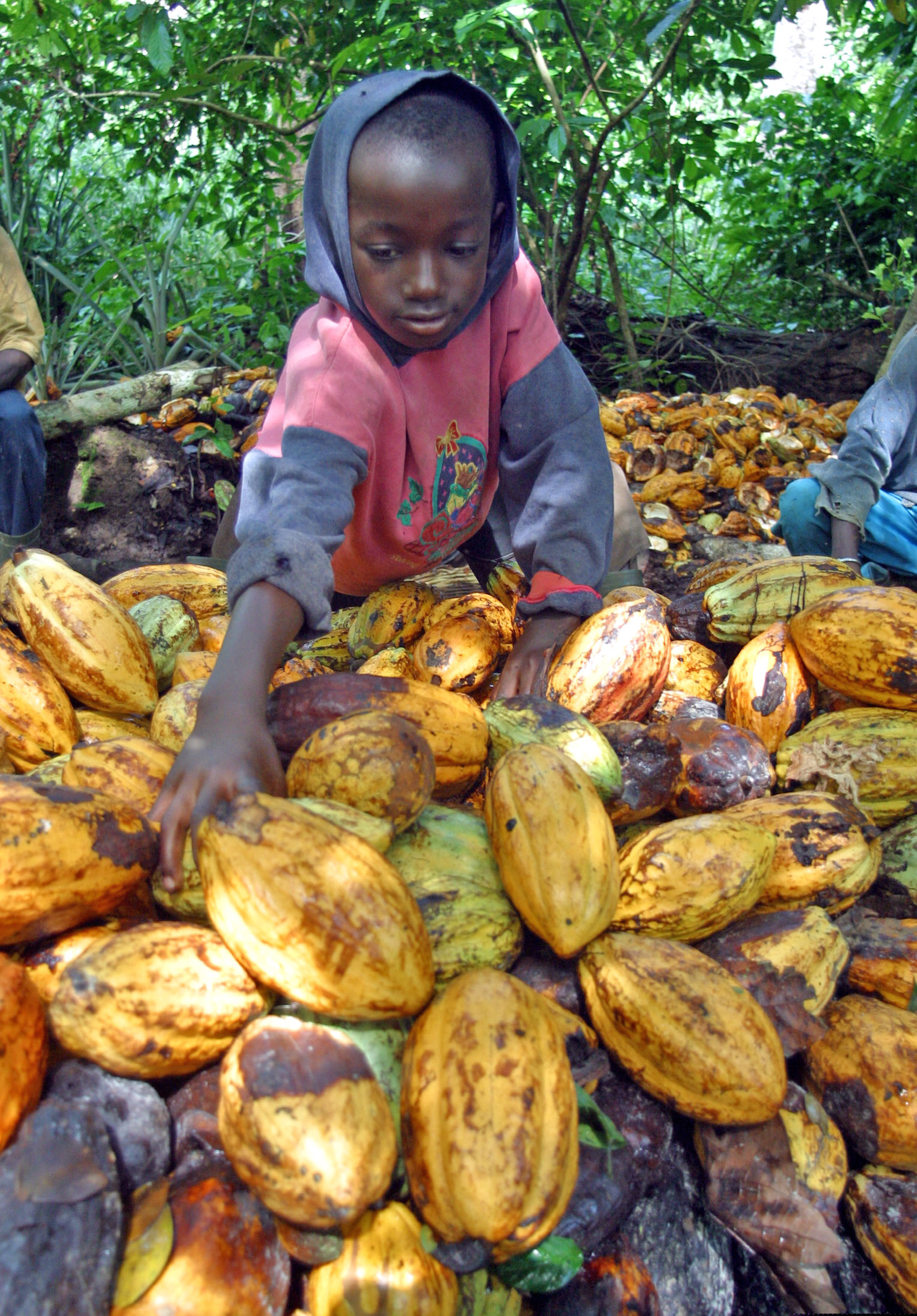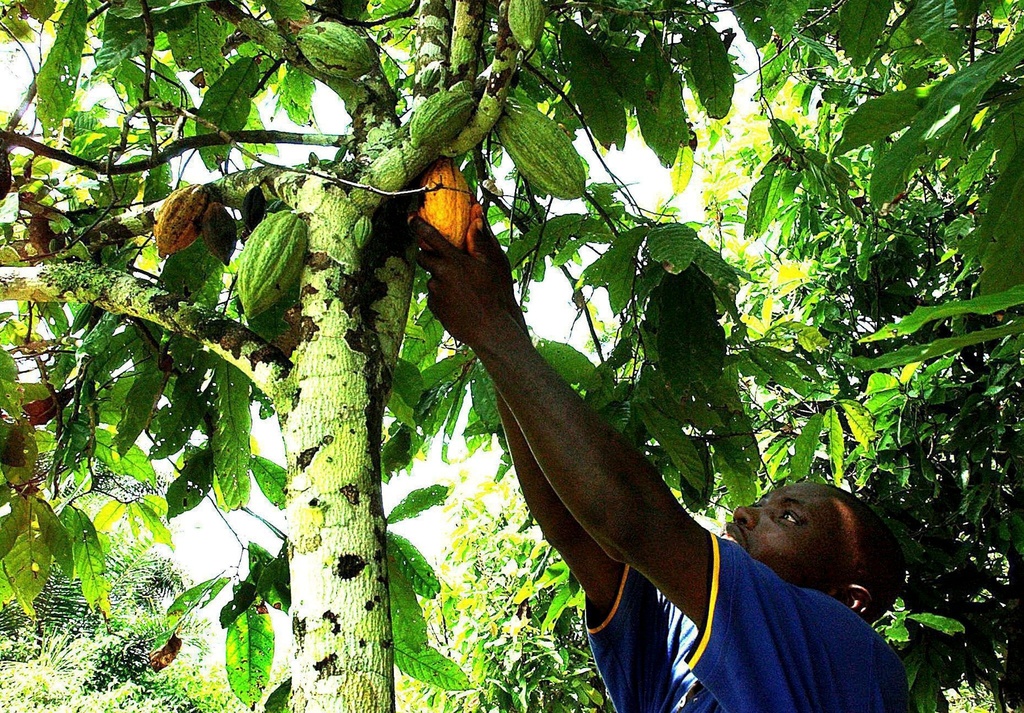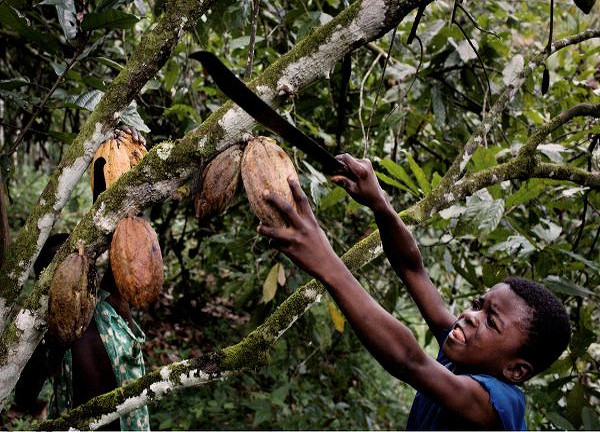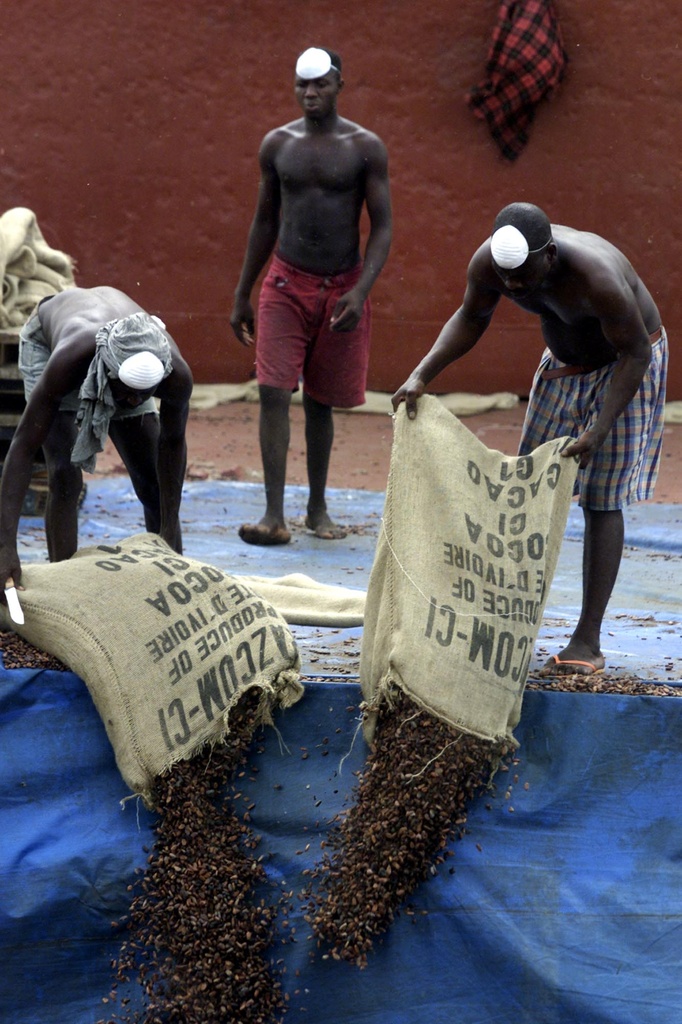Big business pushes for higher cocoa yields

Multinational food firms are stepping up efforts to encourage farmers in developing countries to keep pace with spiraling consumer demand for chocolate.
Firms such as Nestlé and Barry Callebaut argue that improving cocoa crop yields presents a win-win situation for corporations, farmers and consumers. But watchdog groups warn that initiatives often come with damaging side effects.
A rapidly expanding global population, coupled with increased purchasing power of consumers in emerging economies, has placed a strain on many raw materials.
Sudden and serious adverse weather conditions can exacerbate shortages of many staple food materials, leading in some cases to soaring prices. Inefficient farming methods in some countries have also contributed to the imbalances in supply and demand.
Zurich-based Barry Callebaut, the world’s biggest chocolate manufacturer, estimates that global production of cocoa beans (4.25 million tonnes in 2010-2011) has to increase by a quarter by 2020 to keep up with demand for the luxury product.
The biggest obstacle to such an increase in cocoa supply is poor agricultural practices in developing countries that has eroded the quality of both soil and cocoa plants.
“Double” output
In an effort to secure a sustainable future supply of cocoa, Barry Callebaut launched its Quality Partner Program in 2005 to improve agricultural practices in Ivory Coast.
“Ivory Coast cocoa farms typically yield about 400 kilos of beans per hectare, which is lower than other parts of the world,” Barry Callebaut spokesman Raphael Wermuth told swissinfo.ch.
“We believe that we can double this output with very small improvements in some of the latest basic agricultural practices.”
In addition to training programmes, Barry Callebaut stumped up €26 million (SFr31 million) in interest-free loans last year to help farmers buy new crops and fertilizers, a policy also carried out by rival firms.
Other well-known Swiss food companies, such as Nestlé and premium chocolate producer Lindt & Sprüngli, also run social programmes in West Africa with the stated aim of lifting farmers and communities out of poverty.
Watchdog groups welcomed the development that also puts large corporations in closer touch with local farmers, making it easier to trace the source of beans to the best run farms.
However, the problem of children being forced to undertake dangerous work on some plantations still worries agencies such as Berne Declaration.
“Dishonest” marketing
Despite multinational corporations collectively agreeing in 2001 to end the worst forms of child labour, a study released in 2010 by Tulane University of Louisiana in the United States showed that many children are still being trafficked and put at risk in West Africa.
“It is dishonest for companies to market their corporate responsibility credentials to consumers while failing to invest enough in the abolition of child slave labour,” Flurina Doppler of Berne Declaration told swissinfo.ch.
“They are far more interested in ensuring their supply of cocoa than improving social conditions.”
Swiss-based food consultant James Amoroso agrees that the corporate world is more interested in meeting long term demand for cocoa supplies than helping out people in impoverished countries.
“Sustainability is not a charity,” he told swissinfo.ch. “These companies are not do-gooders, but if these programmes are applied properly then they do bring philanthropic side-effects for local farmers.”
“In the short term it is more expensive for companies to source cocoa directly from local farmers,” he added.
“But in the long run it is gives them a competitive advantage to be close to the source and ensure a better supply and quality that your competitors have less access to.”
Stock market volatility
However, Amoroso is convinced that Swiss companies take their social responsibilities far more seriously than some global competitors who merely pay lip service to the conditions of locals on the ground.
Swiss food giant Nestlé insisted that it is dedicated to stamping out child labour by improving productivity on farms in tandem with educational and health projects in West Africa as part of its Cocoa Plan.
“Child labour is very much a symptom of poverty,” Nestlé spokesman Chris Hogg told swissinfo.ch. “By improving the livelihoods of cocoa farmers, the Cocoa Plan aims to improve social conditions in cocoa farming communities and, in turn, reduce child labour.”
But the only way of truly improving the livelihoods of farmers is to better regulate the global trade in the raw materials of food and beverages, according to Berne Declaration. NGOs, companies and many politicians agree that leaving food commodity prices at the mercy of stock market speculators cannot continue.
“There is no level playing field with this system because farmers are powerless to influence prices,” Doppler told swissinfo.ch.
Total global cocoa production in the 2010-2011 season was 4.25 million tonnes, according to the International Cocoa Organization.
That figure represents a 17% increase on the previous season that was blighted by poor harvests.
Cocoa can only be grown in some areas close to the equator. Some 70% of cocoa is produced in West Africa, with Ivory Coast accounting for 40% of world supply.
The Tulane University report of 2010 estimated that 1.8 million children under the age of 15 were still working in the cocoa industry in Ivory Coast and Ghana.
The world’s population is expected to grow 38%, or by 2.6 billion people, to a total of 9.5 billion people by 2050.
At the same time, many consumers in emerging economies, such as China, are projected to enjoy greater spending power in the coming decades which will increase demand for luxury goods such as chocolate.
Barry Callebaut forecasts that another one million tonnes of cocoa beans will have to be produced by 2020 alone to keep up with spiraling demand for chocolate products.

In compliance with the JTI standards
More: SWI swissinfo.ch certified by the Journalism Trust Initiative





You can find an overview of ongoing debates with our journalists here. Please join us!
If you want to start a conversation about a topic raised in this article or want to report factual errors, email us at english@swissinfo.ch.